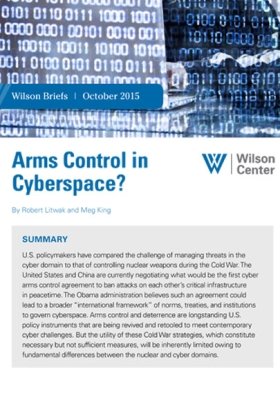Arms Control in Cyberspace?


U.S. policymakers have compared the challenge of managing threats in the cyber domain to that of controlling nuclear weapons during the Cold War. The United States and China are currently negotiating what would be the first cyber arms control agreement to ban attacks on each other’s critical infrastructure in peacetime. The Obama administration believes such an agreement could lead to a broader “international framework” of norms, treaties, and institutions to govern cyberspace. Arms control and deterrence are longstanding U.S. policy instruments that are being revived and retooled to meet contemporary cyber challenges. But the utility of these Cold War strategies, which constitute necessary but not sufficient measures, will be inherently limited owing to fundamental differences between the nuclear and cyber domains.
Authors



Digital Futures Project
Less and less of life, war and business takes place offline. More and more, policy is transacted in a space poorly understood by traditional legal and political authorities. The Digital Futures Project is a map to constraints and opportunities generated by the innovations around the corner - a resource for policymakers navigating a world they didn’t build. Read more

Explore More
Browse Insights & Analysis
Wilson Briefs

The OSCE is a Good Value for America

